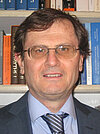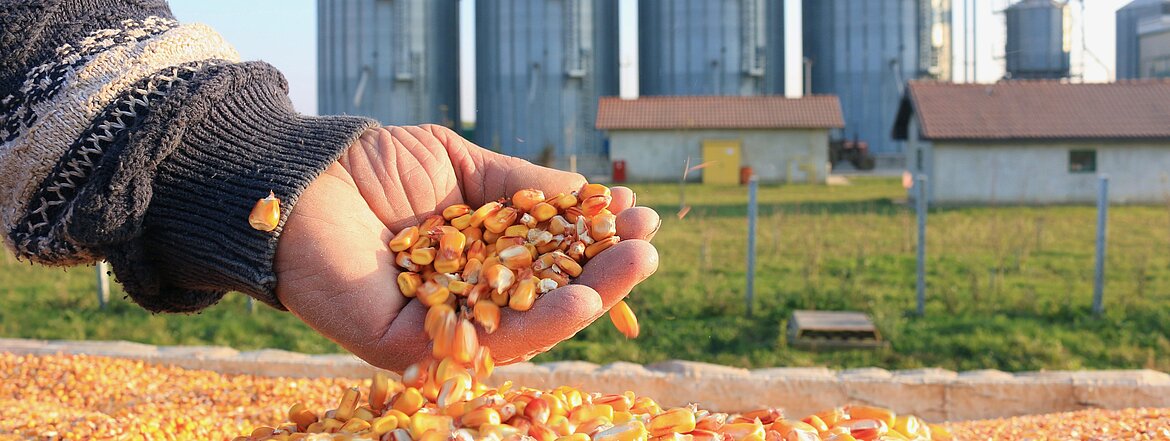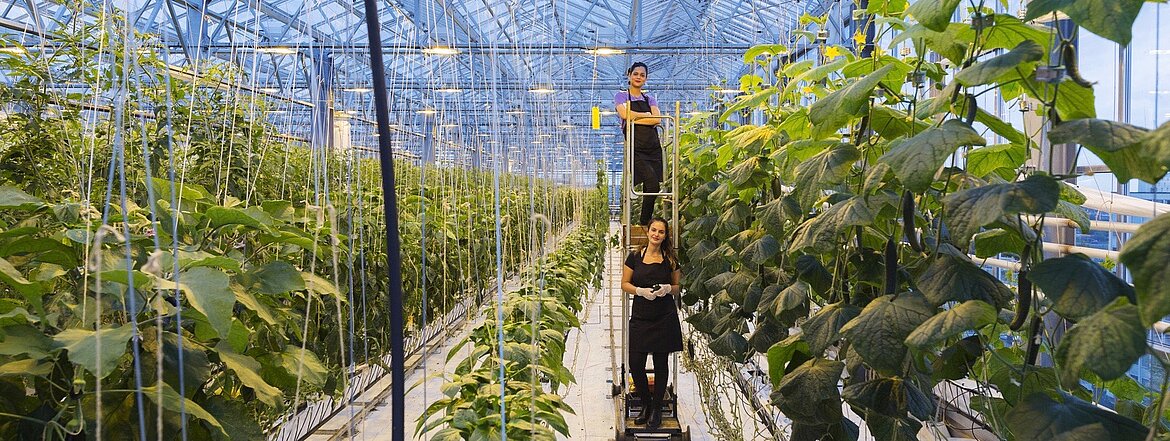Selected Speakers

Maria Backhouse | Professor of Global Inequalities and Socio-ecological Change, Friedrich Schiller University Jena, Germany
Maria Backhouse is a Professor (Jun.-Prof.) at the Institute of Sociology, Friedrich Schiller University Jena, Germany. She is the Director of the BMBF-funded Junior Research Group “Bioeconomy and Inequalities. Transnational Entanglements and Interdependencies in the Bioenergy Sector” (www.bioinequalities.uni-jena.de/en). Her research encompasses environmental sociology, political ecology, global socio-ecological inequalities, renewable energies, bioeconomy as well as knowledge production in the globalized agricultural sector. Her regional focus lies on Brazil.

Regina Birner | Chair of Social and Institutional Change in Agricultural Development, University of Hohenheim in Stuttgart, Germany
Prof. Dr. Regina Birner is Chair of Social and Institutional Change in Agricultural Development at the Hans-Ruthenberg-Institute of the University of Hohenheim in Stuttgart, Germany. Her research focuses on policies, governance and institutions that are essential for global food security and the bioeconomy. She has more than 25 years of empirical research experience in Africa, Asia and Latin America. Since 2012, she has been a member of the Bioeconomy Council of the German Federal Government. She is also board member of the International Consortium of Applied Bioeconomy Research (ICABR) and a member of the International Advisory Council on Global Bioeconomy (IACGB), which organizes the Global Bioeconomy Summit. Regina Birner holds a PhD in Socio-Economics of Agricultural Development from the University of Göttingen, Germany.

Anna Petit Boix | Postdoctoral Researcher, Chair of Societal Transition and Circular Economy, University of Freiburg, Germany
Anna Petit Boix is a postdoctoral researcher at the Chair of Societal Transition and Circular Economy at the University of Freiburg, Germany. She holds a PhD in Environmental Science and Technology from the Autonomous University of Barcelona (2017), where she specialized in industrial ecology with a focus on cities. Since 2017, she is a member of the BMBF-funded research group “Circulus: Opportunities and challenges of transition to a sustainable circular bio-economy”. In her research, she studies the conceptualization of the circular economy at the urban scale and conducts case-study research on the environmental impacts and benefits of bio-based strategies and emergent urban initiatives. She has co-authored 28 peer-reviewed articles and her research on the circular economy in cities was awarded the Helmut-Lieth Prize for Environmental Research 2019 at the University of Freiburg.

Jan Börner | Professor of Economics of Sustainable Land Use and Bioeconomy, University of Bonn, Germany
Jan Börner is Professor of Economics of Sustainable Land Use & Bioeconomy at the University of Bonn, Germany, with applied research experience in Latin America, Africa, and Europe. Between 2012 and 2017, he was Robert Bosch Junior Professor of Economics of Sustainable Natural Resource Use at the Center for Development Research (ZEF) in Bonn, where his work focused on the economic analysis and evaluation of tropical forest conservation policies. Before, he worked as a research associate at the Center for International Forestry Research (CIFOR) and the International Center for Tropical Agriculture (CIAT) based in Brazil, where he was involved in several global research projects on REDD+ and human environment interactions. Jan’s current research agenda expands from national level environmental policy analysis towards the role of technology, global trade, and consumption patterns in affecting the provision of ecosystem services at landscape scale.

Stefanie Bröring | Professor of Technology, Innovation Management and Entrepreneurship, University of Bonn, Germany
Stefanie Bröring is full professor of Technology, Innovation Management and Entrepreneurship at the Faculty of Agriculture at University of Bonn in Germany. Her main motivation in teaching, research and transfer is to understand the dynamics of clean technologies, interdisciplinary research and technology-based startups to foster sustainability as well as digital transitions. After her MSc. in Business Administration she obtained a PhD on Innovation Management from the University of Münster in Germany, which included a research stay at the University of Quebec at Montreal, Canada. Prior to academia she gained a wide array of consulting and industry experience working mainly in new business development-related functions in the chemical and agricultural sector. Having published over 50 peer-reviewed articles her research focuses on the challenges of technology and innovation management in the emerging bioeconomy, industry convergence as well as technology-based ventures and entrepreneurial-ecosystems.

Dimitris Diakosavvas | Senior Economist, Agriculture and Resource Policy Division of the OECD Trade and Agriculture Directorate, France
Dimitris Diakosavvas is Senior Economist at the Agricultural and Natural Resources Division of the OECD Trade and Agriculture Directorate, where he has worked since 1989. His main work areas relate to the measurement and evaluation of agricultural policies, sustainability and productivity. Dimitris Diakosavvas is author of numerous OECD reports including "Bio-economy and the sustainability of the agriculture and food system"(2019) and "Improving energy efficiency in the agro-food chain" (2017). He holds a PhD in Economics from the University of Manchester.

Peter Gerhardt | Managing director, denkhausbremen, Germany
Peter Gerhardt is the managing director of the non-profit organisation denkhausbremen. Together with his colleagues, he organises the bioeconomy discussion for civil society organisations in Germany. Together, these NGOs are committed to a bioeconomy within planetary boundaries. Peter is a gardener, agricultural engineer and has a master's degree in development policy. As a campaigner for environmental organisations, he has organised successful market campaigns against environmental destruction by multinationals such as Procter&Gamble, Unilever or Ikea. He has done research in many countries of the Global South and is a member of the Steering Committee of the Environmental Paper Network International. Peter believes that an ecological transformation will only be successful if it is accompanied by social justice.

Frans Hermans | Research Associate, Leibniz Institute of Agricultural Development in Transition Economies (IAMO), Germany
Dr. Frans Hermans has extensive experience in the field of participatory integrated assessment and sustainable rural development as a researcher at the interface of science and public policy at Telos, the Brabant Centre for Sustainable Development of the Tilburg University in The Netherlands, where he worked between 2000 and 2012. In 2007 he started a part-time PhD project in the Land Dynamics Group of Wageningen University, where he wrote his dissertation on the development of innovation networks that aim to trigger a transition towards a more sustainable agricultural sector. From 2011 until 2014 Frans Hermans worked as post-doctoral researcher in the Knowledge, Technology and Innovation Group of Wageningen University on the European-funded research project SOLINSA: Support of Learning Innovation Networks for Sustainable Agriculture. This project had a strong focus on grassroots innovations in the agricultural sector. In 2014 he moved to Germany and joined IAMO as a Research Associate focusing on transitions and structural change in the agricultural sector.

Martin Langer | Executive Vice President, BRAIN Biotech AG, Germany
Dr. Martin Langer is a biochemist and molecular biologist. He studied biology at the universities Darmstadt & Karlsruhe, Germany and Adelaide, Australia. Since 1995 Martin has been working in various positions with BRAIN. In 2013 he was appointed as executive vice president. After growing the business within the BU Industrial BioSolutions for two years, he took over the position as Head of Business Development in 2020. Aside of that he holds several external positions as e.g. member of the board of IWBio.

Patricia Osseweijer | Professor and Leader of Biotechnology and Society Group, Delft University of Technology, The Netherlands
Professor Patricia Osseweijer leads the Biotechnology and Society Section at Delft University of Technology in the Faculty of Applied Sciences. Her drive is to link technological innovation in biobased production and water systems with societal development for a sustainable and circular (bio)economy, linking SDGs. With her group she works on methodology for social impact assessment, design of novel value chains focussing on integral impact assessment, inclusive innovation, social sustainability, public perceptions, communication and ethics. In 2015 she received the (NL) Royal Academy distinguished Lorentz fellowship for integrating social sciences & technology. Patricia is University Ambassador Brazil, advisor to the TU Delft President and coordinator of the EU-Horizon2020 funded Water Mining program in which 39 partners develop demonstrations on nutrient recycling and water recovery in several venues in Europe. She steers the 19 M program together with colleagues Prof. Mark van Loosdrecht and Dr. Dimitris Xevgenos.

Christina Pinsdorf | Research Associate, Institute of Science and Ethics (IWE), University of Bonn, Germany
Christina Pinsdorf is philosopher and Research Associate at the Institute of Science and Ethics (IWE) of the University of Bonn, Germany. Her focus of research is on ethics and applied ethics with an emphasis on animal and environmental ethics as well as philosophy of nature and the Anthropocene. She studied philosophy, psychology and media sciences at the University of Bonn, Germany and the University of New South Wales, Australia and graduated with a PhD on the ethics of live nature, i. e. the relationships of recognition between human and non-human life forms. Currently she works on her habilitation project “Philosophy of Wilderness”. She is a PI of the project “Bioeconomy and Modern Biotechnologies – Ethical, Legal and Social Aspects” funded by the German Federal Ministry of Education and Research in Cooperation with the Research Center Jülich and the German Reference Center for Ethics in the Life Sciences and is co-publisher of the respective anthology.

Andreas Pyka | Professor of Innovation Economics, University of Hohenheim, Stuttgart, Germany
Andreas Pyka is Professor of Innovation Economics at the University of Hohenheim in Stuttgart, Germany. His recent research interests include transformation processes towards a sustainable and climate neutral economy and the role of innovation in the transition process. He is involved in several national and international research projects dealing with the impacts of the bioeconomy, Artificial Intelligence and Robots, and Mobility and Energy Change. His theoretical background is evolutionary and complexity economics. He graduated with a PhD in economics at the University of Augsburg where he also finished his habilitation in 2004. In the last years he was visiting professor at the TU Delft, at the Università degli studi dell'Insubria in Varese and the Université Paris 1 Panthéon-Sorbonne.

Matin Qaim | Professor of Agricultural Economics, University of Goettingen, Germany
Matin Qaim is Professor of Agricultural Economics at the University of Goettingen, Germany. Before, he had research and teaching positions at the Universities of Hohenheim, Bonn, Kiel, and California at Berkeley. His main research areas relate to sustainable agriculture, food security, and rural development with a particular focus on technical and institutional innovations. He has experience in numerous high-, middle-, and low-income countries. Qaim is member of the German National Academy of Sciences (Leopoldina) and Fellow of the American Agricultural & Applied Economics Association (AAEA).

Justus Wesseler | Professor of Agricultural Economics and Rural Policy, Wageningen University, The Netherlands
Prof. Dr. Justus Wesseler holds the chair in Agricultural Economics and Rural Policy at Wageningen University, The Netherlands. He has a degree in agricultural, environmental and natural resource economics from the University of Göttingen, Germany. His research work is on bioeconomy economics and policies. The major focus is on the contribution of value chains to improve sustainability and the impact of new technologies and regulations on the value chain in this respect. He is member of the International Consortium of Applied Bioeconomy Research (ICABR) and editor of the Palgrave series on bioeconomy economics and policies. He has been involved in a number of small and large scale international research project as team member and/or coordinator. Currently he is the coordinator of the EU funded project Monitoring the Bioeconomy (BioMonitor).

Linxiu Zhang | Director, UNEP-IEMP, China
Dr. Linxiu Zhang is UNEP senior staff member and Director at UN Environment Programme (UNEP)-International Ecosystem Management Partnership (UNEP-IEMP), a joint center between the Chinese Academy of Sciences (CAS) and UNEP. Dr. Zhang used to be Director/Deputy Director of Center for Chinese Agricultural Policy of CAS. She is now affiliated with the Institute of Geographic Sciences and Natural Resources Research of CAS as a senior research fellow and also a professor at the University of Chinese Academy of Sciences. Her fields of research interest are policy relevant studies relating to rural development, particularly poverty alleviation and sustainable livelihoods, poverty-environment dynamics, climate change adaptation and gender. She has published more than 280 papers in peer-reviewed journals and received numerous awards. The most recent ones include “Ten Most Outstanding Women in Science” award from CAS (2013), TWAS “Celso-Furtado Prize” in Social Sciences (2013), “Fudan Management Excellence Award” (2014) and a TWAS fellow (2014).









